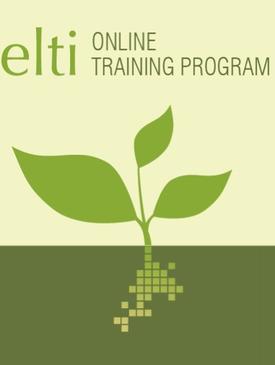Tropical Forest Restoration in Human-Dominated Landscapes
Summary
This online course invites participants to explore the social, biological, and political processes that shape reforestation and forest restoration in tropical regions. It is designed for a diverse audience including forest management professionals, environmental policy-makers, mid-career environmental practitioners, consultants, extension officers, or other types of professionals from diverse institutions (government, NGO, private sector) involved in natural resource management, land-use decision-making, forest finance and investment, or landscape restoration.
Applications will be evaluated on a rolling basis until all positions are filled, after which there will be a waiting list.
Duration: 6 weeks, 5-6 hours per week
Language: English
To apply, please go to: https://yalesurvey.qualtrics.com/jfe/form/SV_cCSTl4jI3p7kDOJ or contact gillian.bloomfield@yale.edu
Content
About the course:
This is a unique opportunity to connect with environmental leaders, interact with Yale faculty, and learn about an issue of immense importance for the sustainability of tropical forest landscapes. Participants will learn about the following aspects, with particular focus on tropical Asia and Latin America:
- Technical aspects of forest restoration in different biophysical and social contexts
- Social, financial, and political catalysts and challenges
- Protocols for monitoring and evaluating restoration for diverse objectives
The course is divided into six modules, each lasting one week. Each module includes videos, readings, resources, discussions, and assignments, completed at the learner’s own pace. In addition, participants will have the opportunity to meet once a week with Yale Professors, ELTI Guest Experts, and the course participants during live online discussions. Live discussion sections will tentatively be scheduled for 11am Eastern Standard Time each Wednesday during the course.
Thematic modules
- Week 1: Ecology, disturbance, and regeneration potential of tropical forests
- Week 2: Sociopolitical and cultural aspects of restoration
- Week 3: Effective practices and strategies for restoration
- Week 4: Integration of restoration and production goals
- Week 5: Monitoring and follow-up of restoration projects
- Week 6: Evaluation of restoration and reforestation projects
At the end of the course, participants will receive a certificate signifying their completion of the course.
This course will be delivered by ELTI Staff Facilitators and Lead Professor:
Mark S. Ashton, Ph.D.
Morris K. Jesup Professor of Silviculture and Forest Ecology and Director of School Forests, Yale University, School of Forestry & Environmental Studies.
Dr. Mark Ashton has over 30 years of experience researching and teaching about the biological and physical processes governing the regeneration of natural forests and on the creation of their agroforestry analogs. In particular, he seeks a better understanding of regeneration establishment among assemblages of closely related trees. His long-term research concentrates on tropical and temperate forests of the Asian and American realms. The results of his research have been applied to the development and testing of silvicultural techniques for restoration of degraded lands and for the management of natural forests for a variety of timber and nontimber products.
Additional live discussion sections with:
Amity Doolittle, Ph.D., Senior Lecturer and Research Scientist, Yale School of Forestry & Environmental Studies. Specialty: political ecology, environmental justice, qualitative research methods and property rights
Eva Garen, Ph.D., Director, Environmental Leadership and Training Initiative,
Yale School of Forestry & Environmental Studies. Specialty: social aspects of conservation and development in the tropics
Bradford S. Gentry, J.D., Professor and Associate Dean for Professional Practice,
Yale University, School of Forestry & Environmental Studies and Yale School of Management. Specialty: private investment and environmental performance, markets for ecosystem services
Florencia Montagnini, Ph.D., Senior Research Scientist and Director, Tropical Forestry Program, Global Institute of Sustainable Forestry, Yale School of Forestry & Environmental Studies. Specialty: tropical forest management, agroforestry systems, forest lansdcape restoration
Daniel Piotto, Ph.D., Professor and Dean, Center for Agroforestry Sciences and Technologies at Federal University of Southern Bahia, Brazil; Specialty: tropical forest ecology and management, plantation forestry, forest restoration
Mark Wishnie, M.F.S., Head of Portfolio Management & Analytics, BTG Pactual Timberland Investment Group (BTG), Brazil. Specialty: Forest finance, timber investment, ecological restoration, environmental policy, biodiversity management
Cost and Course Features:
The cost of the course is USD $1200. This cost includes registration, course materials and the certificate of completion. Limited scholarships are available based on demonstrated need. In addition, our online courses provide a complete and enriching training experience by allowing participants to:
- Access ELTI’s resources and expertise: ELTI specializes in developing and delivering high-quality training experiences for environmental leaders in the tropics. Course participants are presented with key concepts through professionally developed materials designed by Yale University faculty, ELTI staff members, and international partners. These materials employ a variety of teaching tools, including interactive presentations, pre-recorded video lectures, and diverse readings.
- Access international experts and experience: ELTI has a strong emphasis on providing participants with diverse international perspectives, which are presented through case studies and on-the-ground examples from the Philippines, Indonesia, Thailand, Colombia, Mexico, Brazil, Panama, and Sri Lanka.
- Receive customized instruction and personal attention: ELTI’s online courses provide the opportunity for live discussions with guest experts, personalized feedback, and relating homework assignments to the individual needs and interests of the participants.
- Interact with a diverse community of participants: By participating in ELTI’s online course, participants provide peer-to-peer feedback, work in global virtual teams, become part of a “community of learners” during and after the course, and benefit from the diverse experiences of environmental practitioners worldwide.
- Develop practical skills: The homework assignments during the course are designed to help participants develop practical skillsets that they can apply to their careers.


